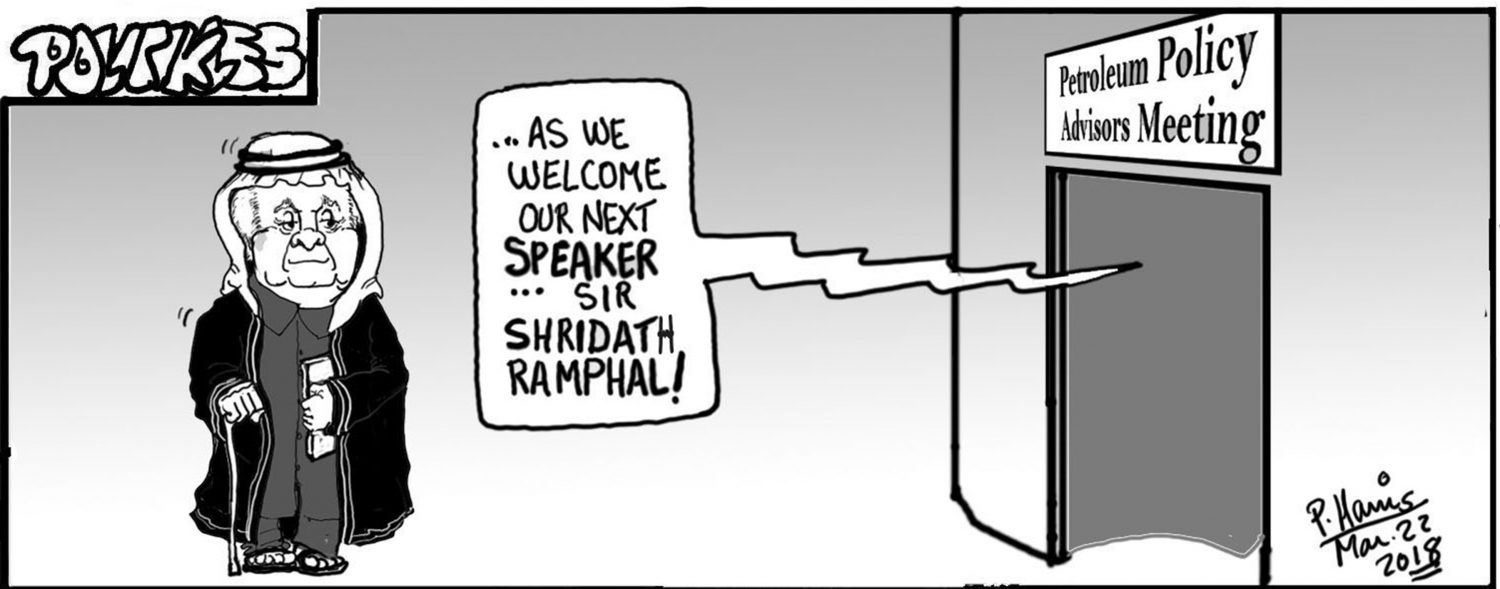Abie eminent scollar

Abie eminent scollar

Replies sorted oldest to newest

Dear Editor,
I did a column a few weeks ago saying it is tricky at this point to get the contract renegotiated, let alone tearing it up. A contract is a contract in spite of the fact that Guyana did not field its best team ‒ an inclusive and multidisciplinary one. As Prof Collier noted, it really comes down to monitoring average cost of production. As a world leading development economist, he understands this point. However, I am not so sure Prof Collier underscored constitutional overhaul as a form of institutional mechanism that is needed in a bi-communal society. For many mainstream economists, institutions are rules and norms that make markets work better and enable private enterprise to take the necessary risks. These forms of institutions are no doubt essential.
However, constitutional overhaul is a form of institutional reform to make government work better in an ethnically divided society such as Guyana. I am not so sure Sir Paul Collier sees the State playing a transformative role in development; at least I did not get this point from his numerous scholarly papers I have read over the years. I have indeed profited from his seminal works. I hope President Granger and his party can see the nuances. I don’t think the AFC values such nuances.
I published a paper in 2016, ‘The political economy of Guyana’s underdevelopment’, showing how the present tinkered 1980 Burnham Constitution given pro-ethnic strategic voting is a drag on growth and development. I have developed this topic further in a forthcoming paper, ‘Politics and underdevelopment: the case of Guyana’, which will be published in a collection of essays edited by Arif Bulkan and Alissa Trotz.
Is the political class really serious about the kind of reform necessary to enable the best use of the oil revenues before the renewables bite?
Yours faithfully,
Tarron Khemraj
Copyright © 2017 Stabroek News. All rights reserved.
Ayoo hear what dis man Iggi/D2 seh about abie eminent high level scallar dress like wan aile sheikh in that pictcha:
=========
I am a great admirer of Dr Collier. He most of all should not have missed the obvious that our institutions predicate the success rate of any macro economic project. He above all understands that a low income economy as ours that is mineral rich can be left in a worse state with the exploitation of its natural endowment than when we did not rely on it.
We are already neglecting to address failings in our agricultural sector and whatever nascent manufacturing and technology growth spurt we had is now anemic in the cradle. Because of the failure of our institutions to allow for broad based cooperation in determining how to manage our mineral resource we now stand on the threshold of becoming a prime example to illustrate the resource curse.
Worse Dr Collier stands side by side with one of the architects of the system that is our ankle weights. He is also in the company of legacy members of said corrupt system. That he failed to advise the necessity to strengthen our institutions and look to broad based political cooperation to formalize a process of optimal growth across all sectors is troubling. It tells us that even our experts have weakness and why we should avoid the "admiration of great men syndrome".
His narrow focus on our disagreement with the contract is a mistake. That disagreement and general discontent it has engendered is a consequence of a failure of our institutions. Lacking his expert advice here as a primary consideration he would have failed us terribly. Sound institutions is the basis from which any kind of optimal thinking is generated.
Access to this requires a premium membership.